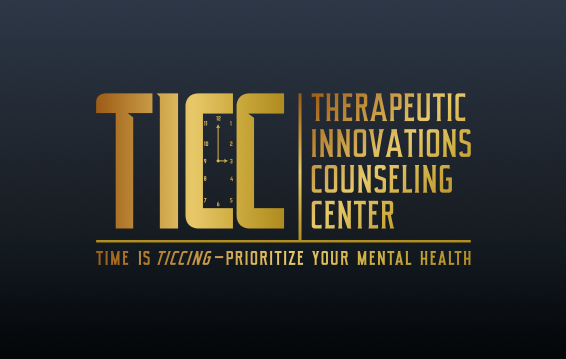
In today’s fast-paced world, people often overlook the significant connection between what they eat and how they feel. We’ve long known that food affects physical health, but a growing body of research points to a much deeper relationship—one that impacts mental and emotional well-being. This is where Nutritional Psychology comes in, a fascinating field at the intersection of diet and mental health.
Whether you’re dealing with stress, anxiety, depression, or just trying to optimize your mental clarity, understanding the gut-brain connection can unlock new ways to achieve your health goals. A nutritional psychologist can guide you in making the necessary changes to improve both your body and mind, offering personalized strategies that align with your mental health and wellness objectives.
In this blog, we’ll dive into the basics of nutritional psychology, explore the gut-brain axis, examine how diet affects mental health, and discuss the key role a nutritional psychologist plays in helping you achieve your mental health goals.
What is Nutritional Psychology?
Nutritional Psychology is an emerging field that examines how diet impacts mental health. It explores the relationship between food and mood, cognition, and behavior, offering insights into how what we eat affects not just our physical bodies, but also our emotional well-being.
At its core, nutritional psychology operates on the understanding that food fuels the brain. Just as a poor diet can lead to chronic physical illnesses like diabetes and heart disease, it can also contribute to mental health issues such as depression, anxiety, and cognitive decline. Conversely, a healthy diet can improve brain function, emotional regulation, and overall well-being.
In recent years, nutritional psychology has gained more attention as scientists continue to uncover the links between gut health and mental health, highlighting the importance of a balanced, nutrient-dense diet in maintaining emotional and psychological balance.
The Gut-Brain Connection: How Your Gut Impacts Mental Health
One of the most compelling aspects of nutritional psychology is the gut-brain connection. Often referred to as the gut-brain axis, this is a two-way communication system between the gut and the brain that influences a variety of bodily functions, including mood regulation and stress responses.
Here are the key elements of the gut-brain connection:
- Neurotransmitter Production in the Gut
Believe it or not, your gut produces a significant amount of neurotransmitters—the chemicals that regulate your mood, sleep, and mental clarity. In fact, around 90% of the body’s serotonin (often called the “happy hormone”) and about 50% of its dopamine (involved in motivation and pleasure) are produced in the gut. When the gut is healthy, it produces these neurotransmitters effectively, contributing to better mental health.
- Neurotransmitter Production in the Gut
- The Gut Microbiome and Mental Health
The gut microbiome consists of trillions of bacteria that play a crucial role in mental and physical health. A diverse, healthy gut microbiome has been linked to improved mood, cognitive function, and even weight management. On the other hand, poor gut health—often caused by a diet high in processed foods and sugar—can contribute to conditions like depression and anxiety.
- The Gut Microbiome and Mental Health
- Inflammation and Mental Health
Poor diet choices, such as consuming too much sugar or processed food, can lead to inflammation in the gut. This inflammation can affect the brain, leading to cognitive impairment and mood disorders. Research has shown that people with higher levels of gut inflammation are more likely to suffer from depression and anxiety.
- Inflammation and Mental Health
The Role of Diet in Mental Health
Given the strong connection between gut health and brain health, it’s clear that diet plays a crucial role in maintaining mental well-being. While therapy and medication are essential components of mental health treatment, nutrition should not be overlooked.
Here are some of the key nutrients that impact mental health:
- Omega-3 Fatty Acids
Found in foods like fatty fish, flaxseeds, and walnuts, omega-3 fatty acids are essential for brain health. These healthy fats have been shown to improve mood and reduce symptoms of depression. They also support cognitive function and may help protect against neurodegenerative diseases.
- Omega-3 Fatty Acids
- Antioxidants
Foods rich in antioxidants, such as berries, leafy greens, and nuts, help protect the brain from oxidative stress, which can damage cells and lead to mental decline. Antioxidants have been linked to better mood regulation and cognitive function.
- Antioxidants
- Probiotics and Prebiotics
Probiotics (found in fermented foods like yogurt, kimchi, and sauerkraut) and prebiotics (found in fiber-rich foods like bananas and oats) help nourish the gut microbiome. A healthy gut microbiome supports mental clarity and emotional stability, while imbalances in gut bacteria have been linked to conditions like anxiety and depression.
- Probiotics and Prebiotics
- Whole Grains
Whole grains like brown rice, oats, and quinoa provide a steady release of glucose, which fuels the brain and helps maintain stable energy levels throughout the day. This can reduce feelings of fatigue and brain fog, common symptoms of poor mental health.
- Whole Grains
- Vitamin D
Known as the “sunshine vitamin,” vitamin D plays a role in regulating mood and warding off depression. You can get vitamin D from sunlight, but it’s also found in foods like fortified dairy products, mushrooms, and fatty fish.
- Vitamin D
How a Nutritional Psychologist Can Help You Achieve Your Goals
Understanding the connection between diet and mental health is only the first step. The real challenge comes in applying that knowledge to your life in a way that works for you. This is where a nutritional psychologist comes in. They specialize in creating personalized dietary strategies that complement your mental health treatment, helping you achieve specific emotional and psychological goals.
Here’s how a nutritional psychologist can help:
- Personalized Nutritional Plans
Everyone’s body is different, and what works for one person may not work for another. A nutritional psychologist can assess your individual needs, lifestyle, and health history to create a tailored nutritional plan that supports both your mental and physical well-being. This plan can include recommendations for improving gut health, balancing neurotransmitter levels, and reducing inflammation—all of which can improve mood, focus, and energy levels.
- Personalized Nutritional Plans
- Addressing Emotional Eating
Emotional eating is a common issue, where people turn to food as a way of coping with stress, anxiety, or sadness. A nutritional psychologist can help you identify the emotional triggers behind your eating habits and develop healthier coping mechanisms. This can lead to better emotional regulation and help you achieve long-term mental health goals.
- Addressing Emotional Eating
- Supporting Mental Health Goals
Whether you’re working to overcome depression, reduce anxiety, or manage stress, a nutritional psychologist can create a diet plan that complements your therapy or medication regimen. For example, if you’re dealing with anxiety, they might recommend foods that help calm the nervous system, such as those rich in magnesium and B vitamins.
- Supporting Mental Health Goals
- Teaching Mindful Eating
Mindful eating is about paying attention to the food you’re eating and how it makes you feel. A nutritional psychologist can guide you in practicing mindful eating, helping you become more aware of your body’s hunger and fullness cues. This can lead to a healthier relationship with food and improve both your physical and mental health.
- Teaching Mindful Eating
- Encouraging Sustainable Lifestyle Changes
One of the biggest challenges people face is sticking to a healthy diet over the long term. A nutritional psychologist doesn’t just give you a list of foods to eat; they work with you to create sustainable lifestyle changes. This might include gradual shifts in your diet, learning how to prepare nutritious meals, or incorporating more physical activity into your routine—all of which contribute to better mental and physical health.
- Encouraging Sustainable Lifestyle Changes
Small Steps to Improve Physical and Mental Health
If you’re looking to make changes in your diet and lifestyle to improve mental health, here are a few small steps you can start with:
- Eat More Whole Foods: Focus on incorporating more whole, unprocessed foods into your diet, such as fruits, vegetables, whole grains, and lean proteins.
- Add Probiotics: Include more probiotic-rich foods like yogurt, kefir, or sauerkraut to support gut health.
- Get Moving: Regular physical activity is essential for both physical and mental health. Aim for at least 30 minutes of exercise most days of the week.
- Practice Mindful Eating: Slow down and pay attention to the food you’re eating. Notice how it tastes, smells, and feels, and consider how it affects your mood and energy levels.
- Stay Hydrated: Dehydration can lead to fatigue and brain fog, so make sure you’re drinking enough water throughout the day.
Conclusion: The Power of Nutritional Psychology
Nutritional Psychology offers a powerful approach to improving mental health through diet and lifestyle changes. By understanding the gut-brain connection and the role that food plays in mood regulation, you can take control of your mental well-being in ways that go beyond therapy and medication.
A nutritional psychologist can be a valuable ally in this journey, offering personalized guidance, emotional support, and sustainable strategies to help you achieve your mental health goals. By making small changes in your diet and incorporating mindful eating practices, you can support both your body and mind on the path to better health. Learn more about how to improve your health. https://ticcenter.org/blog-2/

